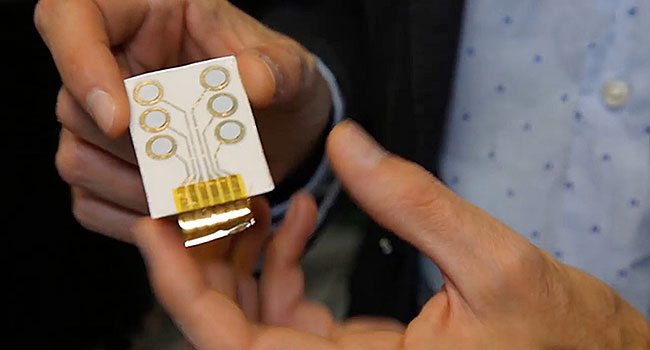Tattoos Modified to be Electrodes Used for Brain Signal Measurement
May 13, 2020 by Christian Signorino"Tattoo electrodes" and are being printed out on inkjet printers and used to measure brain activity. A recent breakthrough in technology, led by Graz University of Technology's head of LAMPSe, Francesco Greco has developed temporary tattoo electrodes that are about 100 times thinner than a human hair.

New research provided by Graz University of Technology suggests something even greater. Building on that incredible accomplishment, Greco and his team took it to the next level.
They modified the electrodes to be used in electroencephalography (EEG). This will allow the tattoo electrodes to measure brain activity. Tests have even shown that EEG measurements obtained by the tattoo electrodes are just as successful as EEG measurements obtained by conventional means.
This new technology will be less problematic for health care providers to work with, as it won't dry out during exams; as opposed to conventional "wet electrodes."
Not only will it be less problematic, but it is also a much cheaper option for long-term measurements. Inkjet printing of conductive polymer on tattoo paper makes this product much cheaper to produce, as well as reducing production times. This is a great achievement in terms of medical advancements and for health care providers all over.
Next »
Whether you're healthy or have a medical condition
you can participate in a clinical trial.
Signup and be matched to trials near youThis free service will notify you of current and future clinical trial matches.
